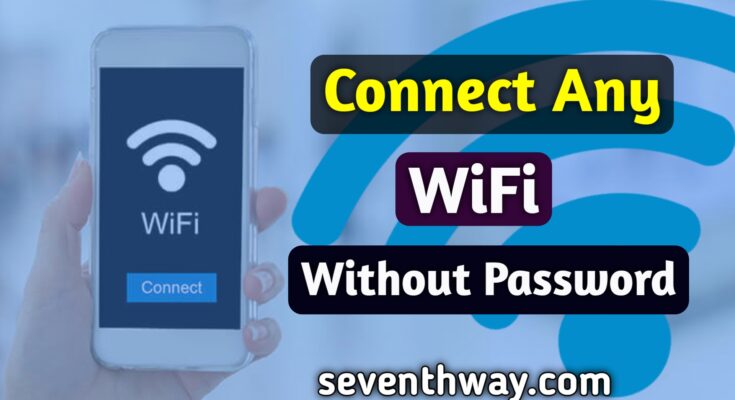How To Recover WiFi- Free WiFi is no longer just a convenience; it’s often a necessity for daily communication, work, and access to information. Whether you’re traveling, in a café, or simply out in public, finding free WiFi can save on data costs and keep you connected.
Get Free WiFi
In this article, we’ll explore both ethical and technical methods to access free WiFi, ensuring you stay online responsibly and legally.
Legal Considerations
Before attempting to access any network, it’s crucial to understand the legal landscape. Accessing WiFi networks without permission can be considered illegal in many jurisdictions. The best approach is always to seek permission or use openly provided public networks.
Public WiFi Availability
Public WiFi is widely available in various locations such as libraries, cafés, airports, and hotels. These networks are usually provided for free or in exchange for a service (like buying a coffee).
Ask for Permissions
One of the simplest ways to get a WiFi password is to ask for it. Most businesses are happy to share their WiFi network with customers, so don’t hesitate to inquire at the counter.
Technical Methods
For those interested in how WiFi access is technically obtained, several methods exist, though caution and respect for privacy and legality are paramount.
Using Default Passwords
Many routers come with default passwords that can be easily found online if they haven’t been changed by the owner. This method should only be used in a legal and ethical context, such as when setting up a new router for yourself or helping a friend or family member.
WiFi Mapping Apps
Apps like WiFi Map or WiFox collect and share locations of WiFi networks along with the passwords, provided by users. These apps are handy for finding free WiFi in many cities around the world.
Social Engineering
This involves asking people for the WiFi password in a polite manner or observing the environment where the network password might be visibly posted. This method relies heavily on interpersonal skills and should always be used ethically.
Security Concerns
While accessing free WiFi, it’s important to be aware of security risks.
Risks of Unsecured Networks
Unsecured networks can expose you to various threats, including the interception of your data by third parties. Always use networks that are protected by passwords, and even then, use a VPN to encrypt your data.
Protecting Yourself
When using public WiFi, using a VPN can help secure your data. Also, avoid accessing sensitive services like banking unless you are on a secure and private network.
Alternatives to Hacking
Hacking WiFi networks is illegal. Instead, consider these legal methods to get internet access.

Municipal WiFi
Many cities offer free public WiFi networks. These are legal and often have no password requirement or a password that’s freely provided by the city.
Mobile Data as an Alternative
When free WiFi isn’t available, using your mobile data plan is a secure alternative, though it may incur additional costs depending on your plan.
Introduction to Gaining Free WiFi Access
In today’s digital age, connectivity is crucial. Free WiFi, whether accessed in coffee shops, libraries, or public hotspots, can be a game-changer, especially when you’re trying to conserve data on your mobile plan. This extended discussion will delve deeper into methods for accessing WiFi, focusing on both the ubiquity and utility of such connections.
Expanded Legal Considerations
Before diving into the specifics of accessing WiFi, it’s essential to reiterate the importance of following the law. Unauthorized access to networks, sometimes referred to as “piggybacking,” is illegal in many jurisdictions. Always ensure that your methods for obtaining WiFi access are ethical and legal.
Permissions and Etiquette
Asking for WiFi access remains the simplest and most straightforward method. In many cases, businesses provide WiFi as a courtesy to customers. It’s good etiquette to make a small purchase before asking for the password, which fosters goodwill and is often appreciated by business owners.
Technical Insights on WiFi Access
Gaining access to WiFi isn’t just about knowing where to find connections. Understanding the technology can help you make informed decisions about when and how to connect.
Router Vulnerabilities
Sometimes, routers are set up with vulnerabilities that make them easier to access. Understanding common vulnerabilities can help you advise friends and local businesses on how to secure their networks—of course, always with their permission.
The Role of WiFi Repeaters
A WiFi repeater can extend the range of a WiFi network. If you’re in a location with limited access, such as a back room or a basement, asking a neighbor if you can install a repeater to share their network (with permission and possibly sharing the cost) can be a viable solution.
Security Protocols and Best Practices
The security risks associated with public WiFi cannot be overstated. It’s essential to understand these risks to protect your personal information.
Understanding Network Security
Secure networks are typically protected by WPA2 or WPA3 encryption. When connecting to any network, check the security protocol used. Avoid networks that use outdated WEP encryption or that have no encryption at all.
The Importance of Firewalls and Antivirus Software
Always ensure your device’s firewall is active and that you have reliable antivirus software installed before connecting to public networks. These tools can provide an additional layer of security against potential intrusions.
Strategic Access to WiFi
Beyond the typical methods, strategic thinking can help you gain access to WiFi in less conventional but still ethical ways.
Community Networks
Some communities create shared networks for residents’ use, which are typically managed to ensure equitable access and reasonable security. Participating in or starting such a network can provide reliable access while also building community ties.
Portable Hotspots
Portable hotspots provided by your mobile carrier can also be a good alternative if free WiFi isn’t available. These devices offer dedicated and secure internet access, though they often come with a monthly cost.
Download Here
Conclusion
Understanding how to access free WiFi responsibly ensures you stay connected without compromising on ethics or legality. By using the methods outlined above, you can access the internet freely and safely in many scenarios.



